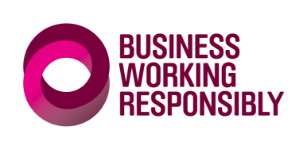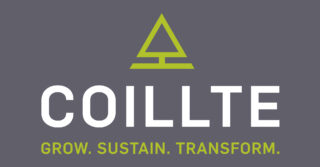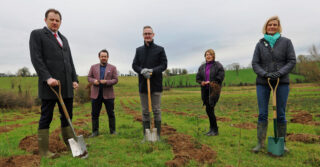The “Social” in ESG takes a holistic approach to community engagement
Business Working Responsibly Mark series: A Holistic Approach to Community Engagement
Welcome to our third article in our series of insights and trends from our 40 Business Working Responsibly Mark certified organisations. While the insights are gleaned from all of our certified organisations, particular attention is focused on the most recent trends from our cohort under the new certification process. The topic for this article is the Social Community pillar.
Social Key Insight – A Holistic Approach to Community Engagement
Many organisations come to us seeking to better understand their “place” in the community. Which generally means how they can seek to have a greater positive impact in the lives of the people who reside and work in their local area. In the past, “Community” was a donation, funding for the local GAA or investment in a capital project for a local school just to state a couple of examples. Then as organisations began to realise that they could motivate and engage their workforce by directly participating in community projects, they began to involve employees in volunteering projects and fundraising as well, which amplified community impact. But until quite recently, organisation philanthropy and employee volunteering (or participation) were considered two separate topics. In recent years though, this has begun to change. In fact, for many Mark organisations dividing a community strategy into employee engagement and philanthropy is no longer the standard approach to connecting organisations to their communities.
Why is this happening? We believe there could be several reasons, but one in particular is evident with Mark organisations. As was discussed in the first article in the series on Governance, the last few years have given organisations an urgent business case for re-examining their purpose and in doing so, considering a wider group of stakeholder needs. Those local community needs are then integrated and into the organisation’s business strategy under one cohesive approach that aligns with business goals and objectives. This approach involves the organisation engaging with a variety of stakeholders, both internal and external, to identify a social need that can benefit from the organisation’s resources. Not just funding and unskilled volunteering, but strategic investment of significant time and money in capacity building within the local community which in turn creates sustainable and mutually beneficial outcomes. These outcomes are clear, as concentrating on one identified issue can result in a much deeper and more tangible impact and enact measurable positive change. This in turn enhances the organisation’s brand as authentic and purposeful.
Another aspect of a purpose-led cohesive community strategy is that volunteering is no longer constrained to a charity partnership, but rather also used to engage employees in the organisation’s purpose which then touches on other aspects of CSR and sustainability such as the environment, wellbeing, or diversity and inclusion strategies. For instance, employee skills can be used to mentor those who the organisation has just hired from a candidate pool taken from several marginalised groups as part of the Diversity, Equity, and Inclusion strategy. Or an organisation with a business model that requires them to use significant water resources may fund a water restoration project, for example, where employees work with researchers and community organisations to improve local water quality as part of a larger natural resource restoration strategy.
While not all Mark organisations have reached this level of maturity, this is a trend we are increasingly observing. Some organisations have gone so far that they have completely integrated their community approach into a larger social objective. This insight is reflected in our social content for Version 5 of our BWRM Mark, as Community Engagement is one indicator under the wider Social pillar.
Social Key Insight – Skills based volunteering
Another observation is the dramatic rise in skill-based volunteering. This fills a critical need for charities that are pressed to keep administration costs low to maximise resources for their core mission. This leaves them with skills gaps in areas such as IT, HR, Accounting, Data Protection, Strategic Planning, Marketing etc. These are areas where larger organisations tend to have more resources which can be redeployed in charities on an ongoing or project basis to fill critical skill gaps. Skills-based volunteering provides communities with specialised support that can result in a much greater and more sustainable impact than unskilled volunteering. There is also a greater benefit to the organisations, as employees feel a greater sense of personal achievement, seeing the skills they use every day have a positive impact for the charity. Skills based volunteering also facilitates impact measurement, the importance of which is described below.
Social Key Insight – Impact Measurement
As described in the first insight, by identifying a societal need and engaging in long term, sustainable partnerships, Mark organisations are facilitating the ability to measure the impact that their actions are having on communities. This is important for two key reasons. Firstly, it demonstrates to increasingly savvy stakeholders, an evidence-based approach underpinning the positive impact that donations are making. Secondly, measuring tangible impact incorporates the same results-driven mindset that organisations apply to all other aspects of their business. This, in turn, becomes a transferrable skill from the organisation to the charity.
Impact measurement is a relatively new and evolving area for both organisations and their charity partners, however, there is much that can already be shared to support the continuous improvement aspect of the management system that the Mark requires. Continuous improvement enables an organisation to deepen their positive impact on society and their internal stakeholders. One notable result of impact measurement is the ability for organisations to identify different employees working on the same social theme and then bring them together to collaborate on an even greater impact.
Find out more
This article has discussed some of the social community insights we are seeing across our Mark organisations with some notable common themes throughout. Organisations have experienced increased stakeholder pressure to achieve a greater and more measurable social impact over of the last several years, and the holistic community approach that has resulted is aimed at achieving just that.
The Mark Sustainability Standard Certification Service provides an assessment for organisations who wish to understand their maturity within these new expectations and a certification process for those organisations who have the requisite management systems already in place.
Find out more about the leading sustainability certification The Business Working Responsibly Mark.
If you are a member please contact your Adviser for more information.







